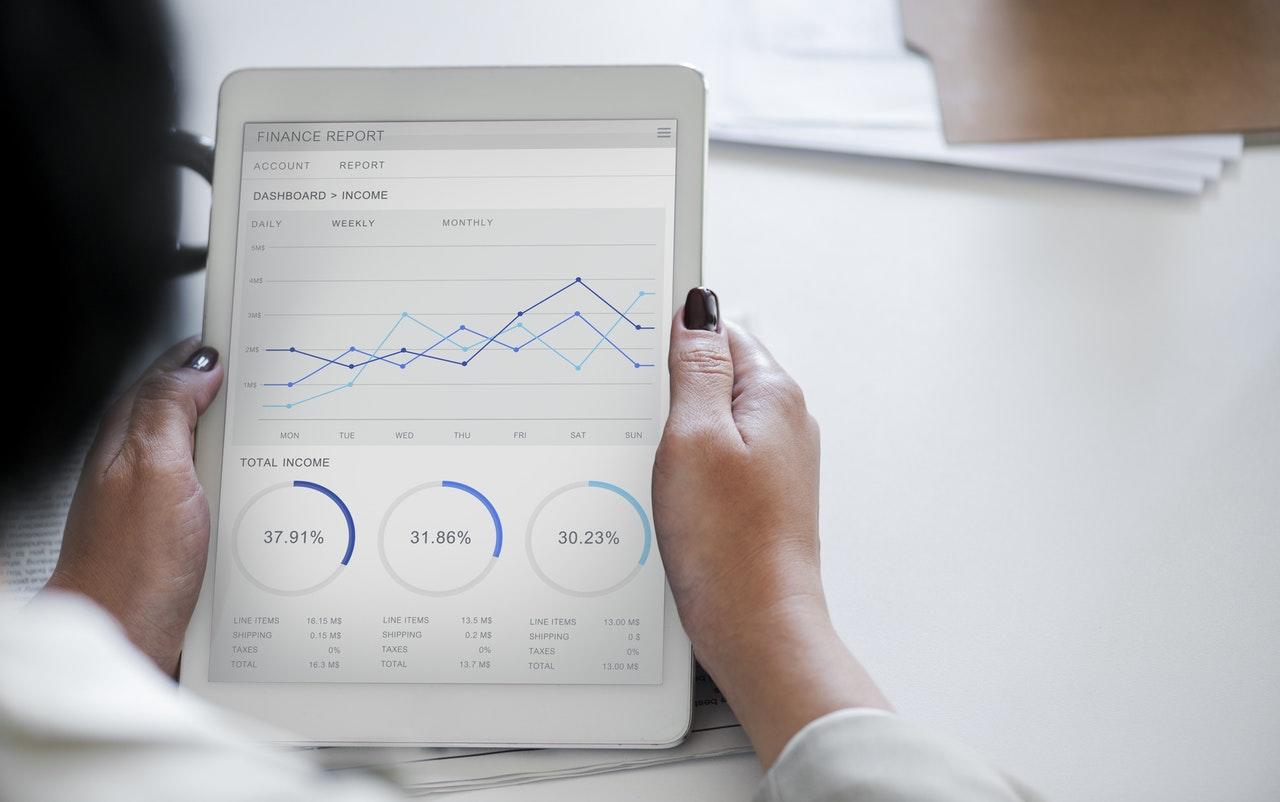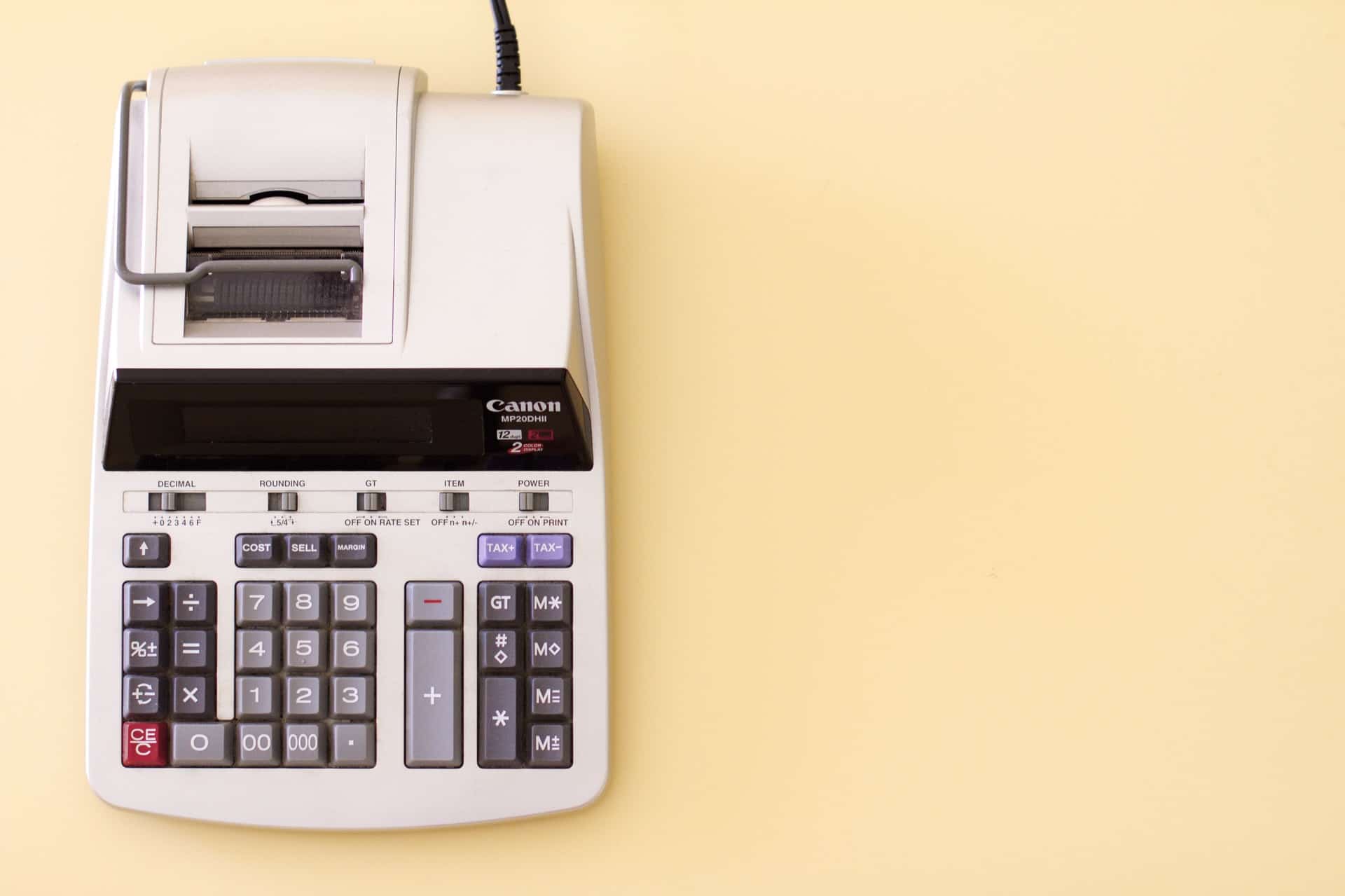Are you naturally good with numbers? Are you quick at solving problems or identifying patterns in numbers? Maybe you should consider becoming an accountant.
The majority of people think of accountants as middle-aged math nerds with tiny glasses hanging over their noses. Like Bob Cratchit, nothing should matter but keeping the books. But it's not just their bosses saying so. The stereotype calls for accountants to live for calculating numbers and figures from nine till five. Oh, and they use obsolete tools and file tax reports all year round.
We could elaborate much further on this stereotype. But if that's basically the picture you have of accountants, it could not be more of an opposite from reality. In modern business, accountants are closer to consultants than they are to bookkeepers. And they don't use hand-cranked adding machines, either.

Of course, keeping the books is still a part of the job description. Those tasks only make up a fraction of what an accounting firm does. That's because accounting software has simplified the normal bookkeeping tasks. Issuing invoices, tracking costs and determining tax payments are now done automatically.
This means that the accountant spends less time actually calculating numbers than auditing processed results. Somebody has to enter all that data, though. Such routine, mundane activities are usually left to clerks or junior employees. The chartered accountant thus has more time to analyse their client-companies' performance. They also look for ways to make these companies more profitable.
The largest accounting firm in the world, Deloitte Ltd., has a whopping 285,000 employees spread around the world. During the 2017-2018 fiscal year, they 'found' more than 43 billion dollars in profit opportunities for their clients. This accounting firm has increased its own revenue for the past nine years. As the biggest of the Big Four accounting firms, Deloitte demonstrates that highly skilled accountants are in demand.
If you are interested in working as an accountant you probably want to know what you're getting into. You're also likely curious about how long it will take for you to climb the ladder to success and reap the rewards of your hard work. So let's look at how long it would take you to become a Chartered Accountant.

Become a Chartered Accountant: First Steps
As noted above, the burden of calculation has shifted to the digital realm. That means you don't have to be a maths wizard to become a chartered accountant. However, the work is more complex than ever before. Today's chartered accountants have to know about everything from tax laws and investments to reporting clients' money affairs ethically. Thus, a university education is the most common path to becoming a chartered accountant in Australia.
The Institute of Public Accountants (IPA) is the lone exception to that unwritten rule. Of the three major accounting bodies in Australia, only IPA will accept you as a member without a degree or master. We'll talk more about the other certification bodies later in the article. For now, you only need to know that earning at least an undergraduate's degree is the best way to assure your future in accounting.
You might be surprised to find that your Bachelor's degree doesn't have to be in Accounting to become an accountant. Accountant certification bodies provide the necessary training for you to earn your certification as an entry-level accountant. However, if you intend to reach the higher levels of accountancy, you'll need a Master's degree in Accounting. You may even choose a Master's of Business Administration (MBA) with emphasis on accounting.
As you likely know, an undergraduate course of study in Australia takes three years of full-time enrolment. You can find accounting degree programs all across the country. Look for degree plans titled Bachelor of Accounting, Bachelor of Commerce (Accounting), Bachelor of Business (Accounting). Note that course names vary from one university to the next. The accounting undergraduate program's name at your nearest campus may be different from those we've listed.
As these courses are offered in pretty much every university in the country. Take your time to see which uni would be the best fit for you. You should consider location, cost, reputation, and facilities when choosing which school to enrol in. Don't forget to ask if there's a job placement program! Maybe your teachers could recommend an accounting tutor so you can keep up with your coursework.
Furthering your studies and gaining a competitive edge is essential in today's education climate. The jobs market is even more competitive! That's why it's a good idea to study for your Master's degree. Holding a Bachelor’s degree is mandatory for admissions in masters of accounting in Australia. The Master's programs in Australia are usually two years of full-time study. You may opt for four years of part-time study.
And we mustn't forget international students. They're so welcome in Australian schools but, if they hail from a non-English speaking country, they must submit proof of English proficiency before enrolling. The study programs and guidelines are the same whether you're native Australian or a visiting student.
Check out these online accounting classes today on Superprof. 
As an accountant you will face figures on your screen all day long, do not forget to take a screen-break from time to time.
Become a Chartered Accountant in Australia Through the CPA Program
Certified Practising Accountants (CPA) Australia is one of the world's largest accounting bodies. CPA boasts a global membership of 168,736 members (as of 31 December 2020) in more than 100 countries around the world. Becoming a member and furthering your training with CPA is a common pathway once you already have your degree or master in accounting.
"Our core services to members include education, training, technical support and advocacy. Employees and members work together with local and international bodies to represent the views and concerns of the profession to governments, regulators, industries, academia and the general public." - from the CPA website
Just like doctors, barristers and a slew of trade professions, chartered accountants must be licensed before they can practise. Working in an accounting office, under a licensed accountant is the sole exception to that rule. CPA is one certifying body. These accounting professionals will educate and train you before awarding you your license.
The CPA program is an 18 month part-time process during which you will study while working. You'll most likely work under the mentorship of a licensed accountant. They have online study options to make it easier if you are working long hours.
The CPA study program integrates education and experience. Their curriculum uses contemporary and internationally relevant material to provide you with an understanding of dynamic issues facing organisations today. Becoming a CPA member will give you an excellent introduction into the industry and provide you with contacts in professional settings which will no doubt help kick start your career.

Following The CA ANZ Program
Chartered Accountants of Australia and New Zealand (CA ANZ) is a an accountant development group similar to the group reviewed above. CA ANZ also offers education and networking opportunities. Accountants must have their Bachelor's degree and be a member to take advantage of all this group has to offer. CA ANZ also one of the three accounting bodies in Australia.
"The CA program will develop your technical knowledge and professional skills through applied postgraduate learning and mentored practical experience." - CA ANZ website
The CA Program includes two parts. The accredited Graduate Diploma of Chartered Accounting (GradDipCA) comprises five modules. They consist of four technical modules and a final Capstone module. You will study aspects of management accounting, financial accounting and best of all, ethics. Most of the modules are done online for your convenience. Beware that you do have time limits, though. You can't take all the time you want to complete this course.
Once you finish this aspect of your training, you'll be treated to three years of mentored practical experience. It may entail being placed in a job where a CA ANZ member supervises you. Or you might find your own job and report to your mentor every so often. Naturally, your professional relationship with your mentor may last for your whole career. Those three years represent only the formal mentoring relationship.
As you can see, the pathway to becoming an accountant or auditor is a long one. But with the guidance that these organisations provide, you will find it easier to get a job. And if you're not sure whether CPA or CA ANZ is the right association for you, you can always talk it over with your Superprof accounting tutor. They're a pretty good mentor, too.

The Association of Accounting Technicians Pathway
If you want to pursue the Association Of Accounting Technicians (AAT) path, you get to choose your programs based on the type of accounting work you wish to do. The great thing about AAT is that, unlike other accounting bodies, they do not require you to have a Bachelor's degree to gain membership.
The AAT was established in Australia in 2002. Three professional accounting bodies support it: 1) The Institute of Public Accountants (IPA), 2) The Chartered Accountants Australia and New Zealand (CA ANZ), and 3) CPA Australia. In Australia, the AAT offers Certificate IV diplomas in a variety of accounting sub-specialities. It take 24 months to earn one.
Certificate IV in Accounting and Bookkeeping is the first step in your accounting career. This course prepares you for any entry-level accountant job. You will be taught the fundamental accounting principles, how finance administration works and the rudiments of bookkeeping and costing. You will also master professional accounting software. The course is two years long. Potential career outcomes include:
- Accounts Administrator
- Accounts Clerk
- Accounts Payable Officer
- Accounts Receivable Officer
- Bookkeeper
- Debtors Clerk
- Payroll Officer
Certificate IV Diploma of Payroll Services is recognised across Australia. This course will teach you how to establish, maintain, and manage a payroll system. You will gain vital knowledge about the Australian taxation system, industrial regulations, superannuation, and cloud computing. The average duration of this course is also two years. Potential career outcomes include:
- Payroll Officer
- Tax accountant
- Accounting Manager
- Financial Controller
Overall, if you follow the AAT path to the end, it will take you 2 to 4 years to be able to join the ranks of certified AAT members. If you have a university degree, you might be eligible to skip some exams and reduce your study time by one or two years. That much sooner, you could find out what salary you could get once you're a certified accountant. The AAT also requires that you complete a certain amount of work experience; most students work and study at the same time.
Find accounting tutors Perth here on Superprof.
The Association of Chartered Certified Accountants Pathway
The Association of Chartered Certified Accountants (ACCA) was founded in 1904. Today, it is known across the globe. This association teaches accounting to more than 500,000 students in 179 countries around the world.
The ACCA curriculum is split into four groups and three different levels. The Knowledge group includes Business Accountancy, Management Accounting, and Financial Accounting. The Applied Skills group includes six different exams: Corporate and Business Law, Performance Management, Taxation, Financial Reporting, Audit and Assurance and Financial Management.
The Essentials Level group includes three exams: Governance, Risk and Ethics, Corporate Reporting (International) and Business Analysis. Finally, each student has to choose two optional subjects between four options which are advanced Financial Management, Advanced Performance Management, Advanced Taxation or Advanced Audit & Assurance.
This learning program has more than a bit of rigidity to it. You must attend to all ACCA modules in order. You cannot sit more than four exams per test cycle. That means that, in practice, it will take you three to four years to become an ACCA Chartered Accountant.
Not too long ago, accountant candidates had ten years to complete all of their exams. This rule recently changed. The ACCA found that accounting procedures, laws and regulations changed too often during that ten year period. Today's guidelines state that you have seven years from the first exam you sit to pass all the required tests. Failing to meet that timeline will mean that all the work you've done to that point will be invalidated.
ACCA members and students living in the Australia and New Zealand have indeed found many pathways to success, but it is one of the more difficult programs for aspiring accountants to complete. My Year 12 Accounting teacher had the right idea. Rather than let me struggle through my exams and possibly fail, they recommended I find a VCE accounting tutor. The ACCA program is just as rigorous but those mentors are just as supportive as my tutor was.

Following The Chartered Institute of Management Accountants Courses
The Chartered Institute of Management Accountants (CIMA) was founded in 1919. After the First World War, business exploded! Money flowed in left and right; every corporation was in expansion mode. They needed a new kind of accounting.
Management accounting, also called managerial accounting, is geared towards managers, as its name implies. Not that managers will take on accounting duties. Only that the accounting results are formulated to help managers make better business decisions. For instance, a manager might receive an order from higher-ups to trim their department's budget. The manager would ask the company's accounting department for an activity-based costing report to decide where to make those cuts.
From that short description, you might realise that management accountants operate in practically every corner of the world. Isn't it good, then, that CIMA's qualifications are recognised worldwide? So if you're in another country and you plan on working in Australia this could be an option for you! Likewise, if you're in Australia and wish to travel the world working as an accountant, you're well served.
For over a century this institute has been focused on training Management Accountants. These accounting professionals focus on managing a company's budget, taxes, strategic planning and financial security. CIMA prepares you for all of these tasks and more. Their learning track is divided into three different levels: Operational, Management and Strategic.
The operational level is about the implementation of a strategy. The management level focuses on the midterm. It translates the strategy decided at higher levels and communicates it to lower levels for implementation. The strategic level focuses on the long term. It concentrates on making strategic decisions and providing the context in which those decisions will be implemented.
These qualifications are further divided into three pillars covering nine different subjects. The Enterprise Pillar manages the formulation of strategy, as well as its effective implementation. It emphasises how change management, project management, relationship management and the structuring of organisations can help to successfully implement a strategy.
The Performance Pillar uses the tools and techniques of management accounting and risk management to ensure that a strategy is realistic and to monitor its implementation. It shows students how to use their understanding of costs to construct budgets, make decisions about prices and capital expenditure, manage costs and manage performance. It develops students' abilities to progressively identify, classify, evaluate and manage risk.
The Financial Pillar focuses on the financial accounting and reporting obligations of a company. This includes an understanding of the regulatory framework and external reporting requirements, and the ability to construct and evaluate complex financial statements to show the financial position and performance of any commercial organisation. The fundamentals of business tax are covered, as are the tax implications of financing decisions. In total it will take you three to four years to become a Chartered Management Accountant.
All of these accounting fields are similar and take roughly three years after you already have a degree, but you should choose the kind of accountant you would like to become, as some of these qualifications lead more easily to certain specialities than others. You may also count on shortening your study time with guidance from accounting tutors.
Summarise with AI:
















Hi. I am almost done with my Bcom Accounting degree in South Africa however I am not a South African citizen so I will be unable to follow the chartered accounting route here. How could I go about the route in Australia?
Can I work while studying to support myself and fund my fees? Thank you
Excellent insights